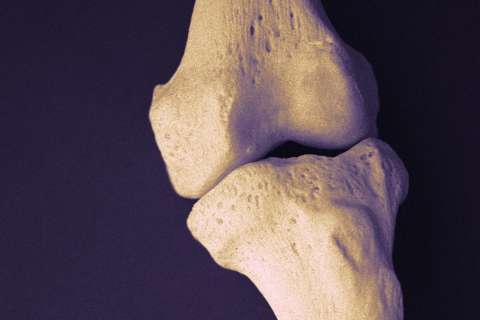Dear Doctors: I’m being treated for lichen planus, which has manifested in my gums. I’ve never heard of it before and would be grateful for additional information. I’d like to know if this is a common condition, if it ever goes away and what would happen if it goes untreated.
Dear Reader: Lichen planus is a chronic inflammatory condition that can affect the skin or the mucosal tissues of the body. Symptoms vary depending on the specific location.
On the skin, lichen planus is characterized by clusters of small, itchy flat-topped bumps with a defined perimeter and a distinctive purplish hue. It can also affect the scalp, where it leads to hair loss, and the nails, which results in thinning, ridging and splitting.
When the condition is found on the mucous membranes of the mouth, it forms lacy-looking patches of white dots on the insides of the cheeks. The tongue and the gums can become red, swollen and tender. In severe cases, ulcers may form. Eating or drinking spicy or acidic foods is often painful for someone with oral lichen planus. The disease can also affect the mucosal membranes of the throat, esophagus and vagina.
Lichen planus is an autoimmune disease, which means that the immune system has gone awry and begun to cause damage to the body’s own cells. Although it’s not entirely clear why, some cases appear to have a genetic component. The disease has also been linked to certain medications that are used in the management of diabetes, cardiovascular disease, hypertension and malaria, which are suspected to act as triggers.
The disease, which is estimated to occur in 1 in 100 people worldwide, is seen most often in middle-aged and older adults. It affects the skin of women and men in equal numbers. However, women appear to be more prone to developing the condition in the mouth and on the scalp.

Treatment depends on the specific location of the disease, as well as its severity. It’s not unusual for lichen planus on the skin to gradually clear up on its own, over a period of months or years. Disease that is present in the mouth tends to be more challenging. It’s often resistant to treatment and has a higher incidence of recurrence. Medications are geared to alleviating itching and burning, as well as inflammation. For oral lichen planus, patients may be prescribed corticosteroids delivered via a mouthwash, gel or ointment to be applied directly to the affected areas. Medications to manage immune response may also be needed. These medications have side effects, so you and your doctor must balance the benefits against potential risks.
There is some evidence that vitamin D, which has numerous effects on cells within the immune system, may aid in the treatment of oral lichen planus. A study published in The Journal of Contemporary Dental Practice in 2020 found that of the 450 people with oral lichen planus who underwent treatment for six months, those who received supplemental vitamin D showed the most improvement. It’s worth discussing the study with your doctor to see if the findings might be applicable to your case.
We understand that a skin disease can be distressing. At UCLA Health, our dermatologists provide advanced care in a compassionate environment. Learn more and schedule an appointment.
(Send your questions to [email protected], or write: Ask the Doctors, c/o UCLA Health Sciences Media Relations, 10960 Wilshire Blvd., Suite 1955, Los Angeles, CA, 90024. Owing to the volume of mail, personal replies cannot be provided.)





